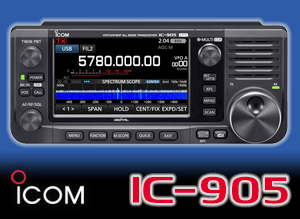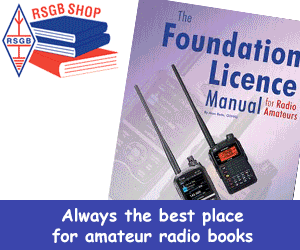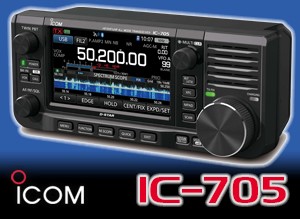Also in GB2RS this week…
The German telecoms regulator, BNetzA, has enabled access to the new WRC-15 60m amateur allocation to all German Class A licensees as of the 20th of December. The allocation is from 5351.5 to 5366.5kHz on a Secondary basis with a maximum power of 15W EIRP and a maximum bandwidth of 2.7kHz. All modes are permitted and the German national amateur radio society, DARC, recommends the use of USB and the IARU Region 1 provisional band plan for 60m.
Separately, ComReg announced on 22 December that amateurs in the Irish Republic have access to the 5MHz WRC-15 band, with immediate effect. The allocation is 5351.5 to 5366.5kHz, on a secondary basis, all modes and 15W pep. IRTS recommend usage in line with the provisional IARU band plan.
Ofcom has launched the next stage of their review of UHF spectrum in the 410-470MHz range. The UK 70cm amateur band is not affected. The consultation document includes measured data on East Coast UHF propagation from the Ofcom monitoring network and a 12dB change for VHF Band 1 planning due to the increasing noise floor. Details are at tinyurl.com/GB2RS-2512
The annual KW Days activity weekend takes place the 7th and 8th of January. It is a great opportunity for collectors, enthusiasts and all those with fond KW memories to get on the air. SSB activity centres are on 7.177, 3.777 and 14.277MHz but operators are encouraged to use KW gear on other bands. Vintage KW, AM and CW-only gear will be on the VMARS net channels.
A few weeks ago Leicestershire Repeater Group took their 10GHz beacon, GB3LEX, off the air. The beacon keeper, G3TQF, found that the PA stage has failed. A search is now on to find a replacement PA. Further info will be published at www.leicestershirerepeatergroup.org.uk as it becomes available.
To assist with the creation of new and appealing products for radio amateurs and those with related interests, the RSGB is creating a Product Development Group. The purpose will be to identify new product opportunities and take an innovative approach to their creation from concept through to being offered for sale. The group will comprise a cross-section of amateurs with diverse interests across a range of ages and experience. If you think you can contribute to the work of the group please contact RSGB General Manager Steve Thomas, M1ACB via email to gm.dept@rsgb.org.uk telling us how you can add value to the product creation and delivery process.
The long-awaited Galileo satellite navigation system went live last week. First conceived in 1999, seventeen years ago, it will offer most users a 3D positioning accuracy of about one metre as receivers and additional satellites become available. In the past the system has caused concern as one of the new frequencies it uses is within the 23cm amateur band.
It has long been an aim of both the Radio Communications Foundation and now the RSGB’s Examination Standards Committee to be able to provide online amateur radio examinations. The current exam system EMAS has proved to be an extremely reliable system since it was first introduced in July 2013. However, a decision was made last year to investigate the potential benefits of online examination systems that could offer additional capabilities, such as online registration and statistical reports to analyse candidates’ results and the performance of individual questions. The RSGB is now pleased to announce that the next phase of the project will be to carry out a pilot exercise for online Advanced examinations based at radio examination venues. The pilot phase will start mid-January 2017 with exams running from mid-February 2017. Further details will be announced early in 2017 regarding registering for the pilot phase and the equipment requirements for exam venues. The RSGB appreciates that this option will not be for everyone as many radio examination venues don’t have internet access. In those cases the exam will still be available on paper. For more details see the RSGB’s website. If you have any questions about this pilot, please email online.exams@rsgb.org.uk
The Department for Business, Energy and Industrial Strategy has made new EMC Regulations to bring the revised EU EMC Directive no 2014/30 into UK law. Statutory Instrument 2016/1091 came into force on 8 December. The revised EMC Directive reflects the requirement for greater market surveillance and places new obligations on importers and distributors for ensuring compliance as well as manufacturers. The technical requirements concerning emissions and immunity of electrical equipment at the point of first placing on the market or taking into service are essentially unchanged. The aims of the Directive still include the protection of the amateur service. Ofcom remain an enforcement authority. The Society is still awaiting news of the transposition into UK law of the new Radio Equipment Directive.
Finally, a note for your diary. The International DX Convention 2017 in Visalia, California happened from the 21st to the 23rd of April 2017. DXers from around the world will gather to meet their fellow DXers, attend interesting and informative programs and see the latest in new products from the top vendors. Full details are at www.dxconvention.com/
Category: GB2RS Headlines










